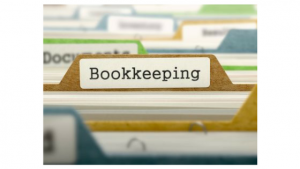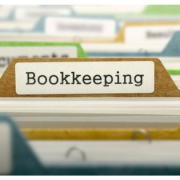The importance of keeping good business records

Any small business or sole trader will be aware that they should keep good records of their income and expenditure. But do we really understand why we are doing all this paperwork and filling in these spreadsheets? Is it really necessary and what would happen if we decided to just do the basics?
You can keep records in all kinds of ways, but digital records or software packages really are the easiest these days. This means that you can keep a daily track of your incomings and outgoings and have an idea of where your business stands at any point. Of course, if you still prefer the old ledger style of accounting, there’s nothing wrong with that – just be consistent and do it regularly.
Read on for a list of very good reasons why keeping financial records is not only essential, but it could improve and save your business.

Marketing your business
Good records should always include information about your customers including their email address and preferences if possible. That way you can target them when you want to improve your turnover. If you know how much they usually spend, you can offer them good deals and individualised offers. As a side benefit of invoicing, this is a fantastic way of keeping track of your customers and suppliers.
The dreaded tax return
You will be fined £100 if you fail to file your tax returns on time, so having a good record of your income and expenditure is essential. You need these figures at your fingertips to allow you to keep track of how your business is looking across the year and that your tax savings are on target. The time it takes to fill out your tax return can be halved if you have kept a running total of your income throughout the year.
Audit time
Every now and then HMRC might decide to send you for an audit. They will expect to see a detailed system of records of your business transactions and that these tally with what you have filed in your tax return. If you claim expenses, you need to show receipts and prove they are allowable. If these is all carefully prepared, you’ll be ready any time they come knocking. Usually HMRC will expect to see 7 years worth of records for your business.

Growing your business
If you want to get a loan or mortgage for your business, you will need to show that it is financially healthy. So having more than just your tax returns to show could give you a headstart. This will show you have worked out what you want to do with the money and how it will be carefully spent. You can also easily prepare a business plan based on your current figures – one that is accurate and detailed.
Also, knowing the state of your business on more than a yearly basis will help you to plan for expansion. You can ensure that you are meeting goals and targets and that you are building your business the way you hoped. You will also be able to catch any downturn quickly before it has made a huge dent in your profits.
Saves your accountant time
….and you, money. If you are able to hand over clear financial records to your accountant, they can easily prepare your accounts and they will be able to charge you for less time. No accountant wants to wade through pages and pages of handwritten records – so having a good system is vital to ensure accuracy for the accountant and for yourself.
Its the law
Even if none of the above have convinced you, the fact that good record keeping is a legal requirement under the rules of self assessment should keep you on your toes. If this is the only reason why you do it – then that is enough.





Leave a Reply
Want to join the discussion?Feel free to contribute!